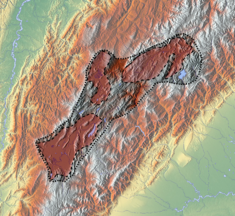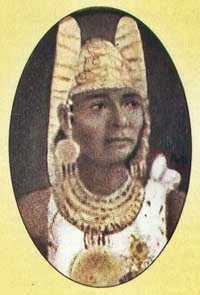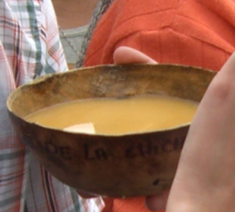 |
| Part of a series on |
| Muisca culture |
|---|
| Topics |
| Geography |
| The Salt People |
| Main neighbours |
| History and timeline |







This article describes the role of women in the society of the Muisca. The Muisca are the original inhabitants of the Altiplano Cundiboyacense (present-day central Colombian Andes) before the Spanish conquest of the Muisca in the first half of the 16th century. Their society was one of the four great civilizations of the Americas.[1]
Women were important and considered egalitarian to men in most cases in the Muisca society. While the men were tasked with hunting, warfare, and other activities, the women performed the sowing of the farmfields, the preparation of foods and chicha and the education of children. The participation in the religious rituals was of both genders. The most important deities of the Muisca were female; Chía as goddess of the Moon, Huitaca of sexual liberation and Bachué the mother goddess of the Muisca people.
While the first chroniclers were all male, during the period of conquest and early colonisation Gonzalo Jiménez de Quesada, Pedro Simón, Juan de Castellanos and Lucas Fernández de Piedrahita, 20th and 21st century anthropology has been conducted by many women scientists. Main contributors to the knowledge of women in the Muisca society have been Muisca scholars Ana María Groot, Marianne Cardale de Schrimpff, Sylvia Broadbent, Ana María Gómez Londoño, Martha Herrera Ángel and various others.
- ^ Ocampo López, 2007, p.26
© MMXXIII Rich X Search. We shall prevail. All rights reserved. Rich X Search
